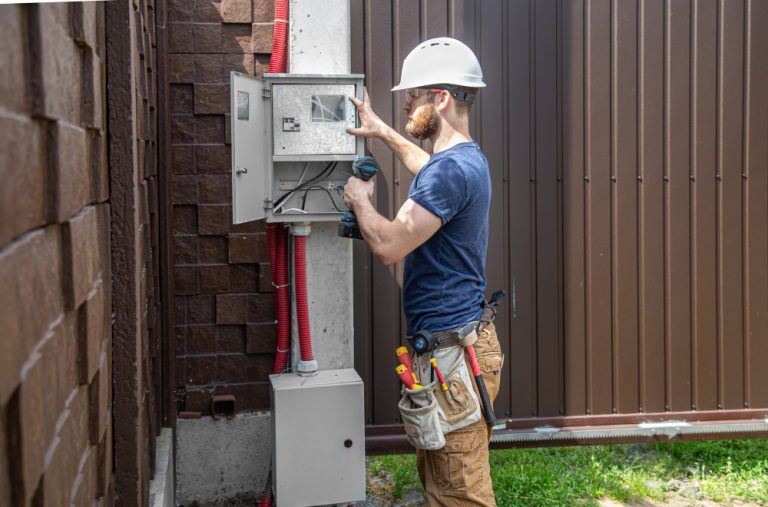Dishwasher installation is often complicated by existing plumbing and wiring connections that need to be modified during the remodel. The dishwasher drain hose loops up to the underside of the countertop and connects either to a garbage disposal nipple or to an air gap fitting, depending on code requirements in your area.
Installation
Whether installing a dishwasher for the first time or moving it to a new location during a kitchen remodel, you will need new plumbing and electrical connections. Licensed professionals best handle these tasks.
If your existing pipes are not up to par, installing new plumbing will cost $600 to $1,600. However, you can save money by choosing PEX or CPVC pipes instead of copper.
In many states, you must use a GFCI-protected outlet for your dishwasher. It will prevent other appliances from drawing too much current and potentially overrunning the breaker.
A functioning dishwasher enhances your kitchen’s functionality and contributes to a more organized environment. It can also increase your home’s value. However, improper installation can lead to costly repairs and pose health risks. Professional dishwasher installation Maryland guarantees that your dishwasher is correctly integrated with your home’s plumbing and electrical systems, preventing damage and increasing energy efficiency.
Plumbing
Specific rules about plumbing installation, repair, and maintenance may exist depending on where you live. A licensed plumber should know the latest rules and regulations.
Some states require that dishwashers be GFCI-protected (NEC 210.8.D). It doesn’t mean cord-and-cap or direct-wired; it simply means that a receptacle for the appliance must be used, and it can only be connected to one other outlet in the circuit.
The State Board of Maryland requires all licensed plumbers to take continuing education courses yearly. These training courses help ensure licensed plumbers have the knowledge and skills needed to perform work according to the current version of the Maryland plumbing code. Statewide, the plumbing code is based on the International Plumbing Code. However, local jurisdictions can modify these codes to suit their conditions. They can also make them more stringent than the model code. Statutes and the Administrative Procedure Act must make these modifications.
Electrical
If you’re adding a dishwasher to your kitchen for the first time or moving it to a different location during a remodel, you will likely need new electrical connections. New rules set by the National Electrical Code (NEC) will be coming into effect soon, requiring new wiring for dishwashers, refrigerators, ovens, and other kitchen appliances.
One of the most significant changes is that all installations must be GFCI-protected. Previously, this was only required for appliances that worked closely with electricity and water, like washing machines and dishwashers. Now, it’s necessary for all new installations regardless of whether the appliance is plug-and-cord or hard-wired.
The reason for this is that a GFCI protects against shock and electrocution. In addition, all installations must have a maintenance disconnect to allow you to pull the machine out for service quickly in the future. Ideally, this should be located in a receptacle that will be used sparingly, like in the garage or basement.
Cabinetry
A kitchen stocked with custom cabinetry adds beauty and functionality to a space. But don’t stop at the kitchen; these customized solutions can elevate your laundry or utility room!
The IRC doesn’t get too specific on dishwasher landing zones, but NKBA suggests that a minimum of 24 inches of landing area is provided on one side and 18 on the other. It ensures plenty of space for a hot pan from the oven or a gallon of milk from the fridge to land without interfering.
In addition, a GFCI-protected outlet is required. It can be a single appliance receptacle, a cord-and-cap outlet (or, if your state doesn’t require it, a standard non-GFCI receptacle). Suppose you’re connecting a new dishwasher to existing hookups or installing one in a different location during a remodel. In that case, a licensed professional will likely need to do the plumbing and electrical work. It will increase the cost of your project.
















+ There are no comments
Add yours